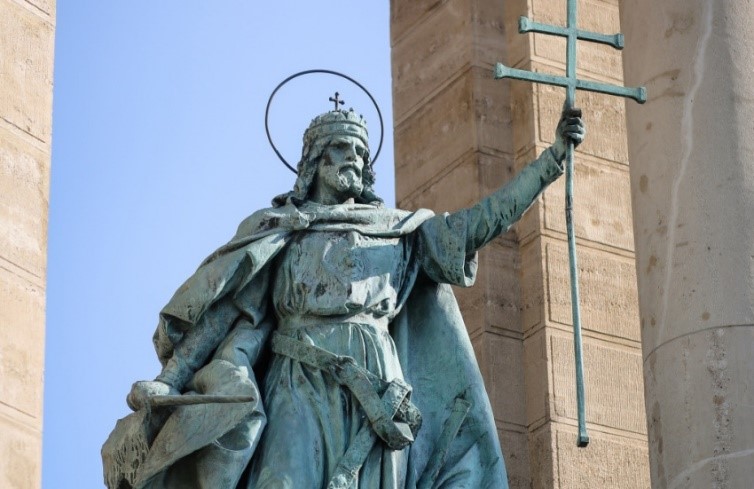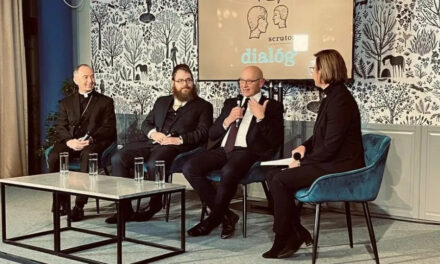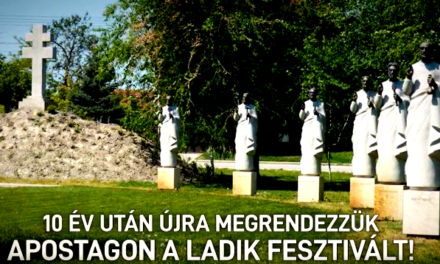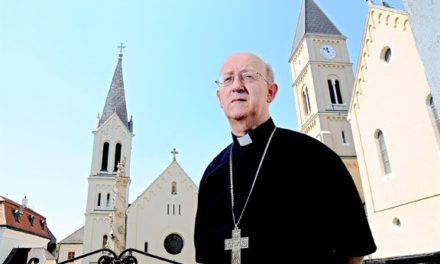The left-wing media are outbidding each other in proving that the majority of the Hungarian population is no longer religious - however, they subtly hushed up the fact that this was a question on the census questionnaire that was not required to be answered.
As soon as the final results of the census, including the one on religious affiliation, were announced, derisive headlines immediately appeared in the left-liberal media. "The religious are in the minority", "The number of Catholics in Hungary has halved", "The number of Muslims in Hungary has doubled in the last twenty years, while the number of Catholics has halved" and the rest. (Let's add parenthetically, the latter telex address is a smiling effort if only because 7,900 people have now declared themselves Muslim.)
It is as if - literally - they have been waiting for a thousand years to finally be able to say: Hungary is not a Christian country.
They want to sit on a cake.
However, there is a small snag here with the longing words. Hungary is one of those countries where the state is so tolerant of all reports to the contrary that it is not mandatory to answer the question about religion even in an otherwise completely anonymous, protected census questionnaire. Which is an important circumstance, since this is still mandatory in many countries, at most a citizen can classify himself as non-religious or atheist.
Back home, on the other hand, 40 percent could do without any retort by skipping the question - several even commented on their state of health. But are we surprised at this?
Is it possible to separate the religious issue from the permanent heckling campaign that the left-liberal media has been conducting against churches and religiosity for many years?
The family is no longer an obvious reality, but something incomprehensible and malleable. What progressives say with a catchy slogan: "family is family".
It should be seen that only 1.1 million people did so in 2001, and 3.8 million last year. It was not by chance that the Hungarian Reformed Church also highlighted this fact, stressing that it is not possible to get an authentic figure on the exact number of individual denominations. "Non-respondents can be religious as well as non-religious. When evaluating the data, it is therefore worth relying on the numbers and proportions within the respondents," they wrote.
And if we do so, it can be seen that in our country 73 percent said they were religious (predominantly Christian) and 27 percent said they were not religious.
It is a fact that, based on the results of the census, the number of adherents of the dominant Christian churches - at least those who have accepted it - has decreased. If we only look at the largest domestic church, 2.9 million people said they were Catholic. According to previous censuses, there were 5.5 million Catholics in 2001 and 3.8 million in 2011. Meanwhile, the Reformed and Evangelicals also lost many believers.
However, it is difficult to argue with the Hungarian Catholic Bishops' Conference, which wrote after the data became public: "International trends can also be observed in the census data, from which our country and within it our Catholic communities are no exception."
Religiosity is on the decline throughout the modern world, from the United States to Western Europe to our country. At the same time, however, ties to Christian traditions are still strong in Hungary. According to a recent survey by the Center for Fundamental Rights, three quarters of respondents think that Hungary is a Christian country based on its culture and traditions. In fact, 86 percent of those surveyed said they were baptized.
The inaccurate results arising from the permissive census question provide opportunities for many things, raise many questions, and give the churches many tasks.
However, one thing is certain: to put it mildly, religious people would have been in the minority. In other words: fake news.
Hungary is a Christian country - and this fact is not changed by the left-liberal media's intense mood-raising.












